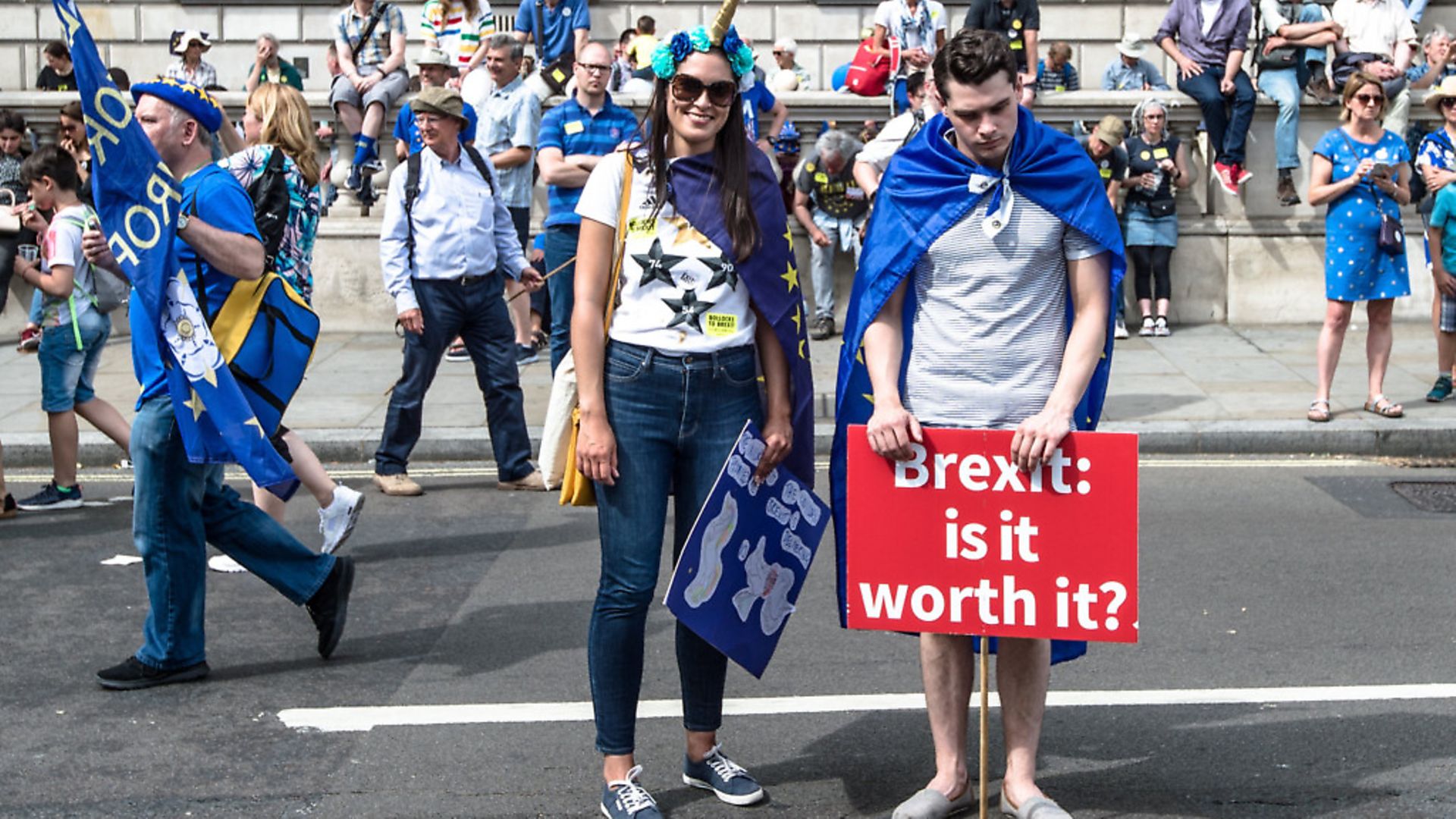
How the teenagers who have turned 18 since the Brexit vote could be the ones to break the country’s deadlock.
As the shambles of the Brexit negotiations have unfolded, many of the Leave claims have gone the way of Boris Johnson’s credibility. ‘Easiest trade deal in history’… Er, well, OK so no trade deal at all actually. ‘We will hold all the cards’… Turns out we are led by jokers holding nothing but jokers. ‘£350m more for the NHS’… Sorry, actually we meant we’ll have to stockpile medicines and blood just try to keep people alive.
Theresa May is reduced to saying that a no-deal Brexit ‘won’t be the end of the world’. I know she is not the most inspiring of politicians, but it is hardly JFK’s ‘Ask not what your country can do for you…’ is it?
But throughout this funny-if-it-wasn’t-so-serious nightmare, there is one argument the leading Brexiter politicians cling to, as if to the mast of a ship sticking above the water, when the rest of the vessel has gone down.
Brexit must happen because it is the ‘will of the people’. Because Leave won the 2016 vote, we must all stand back, say nothing and allow the country to be screwed over.
The will of the people argument is being used by Brexiters as the clincher, the one thing that can’t be refuted, unlike all the lies they told during the campaign. Priti Patel was absolutely clear on this, saying: ‘This is no longer an argument about whether Brexit was a good idea but is about democracy and standing by the democratic decision made by the people.’ So there we have it. Even though all those claims about Brexit have gone up in smoke, even though we now all know it’s a really dumb idea, we should just crack on because the decision was made by ‘the people’.
But the thing is, the people who will have to live with Brexit all their adult lives are not the same as the ones who voted in the referendum. Some 1.5 million people have turned, or will turn, 18 between June 23, 2016, and March 29, 2019, when we are set to leave, 82% of whom want to remain in Europe. That is more than the difference between the Leave and Remain votes in 2016.
These people – and I am one of them – have had enough of the idea that our ‘will’ does not count; that our worries about the economy don’t matter; that our concerns about being able to study and work in Europe should be dismissed; that our horror at Britain’s declining standing in the world can be ignored.
Yes, of course, after every election, there are young people affected by a government they were too young to vote for. That’s life. But this is very different, for two reasons. First, the Brexit decision – to exit or not – is a binary one which will affect us for decades.
If we leave there is no real chance of going back any time soon. So it is quite unlike a general election. There is more at stake and the result can’t be reversed in another vote five years later. That means that getting the informed consent of every adult at the time we leave, when we know what the deal is and what it will mean is critical.
Second, the length of time between the referendum and the date of leaving – 1,009 days – plus another two years of transition, means that the electorate has changed, and so the will of today’s people should not be taken for granted. After a general election, there is not normally a two year and a half year gap between the vote and the new government being formed. And the new government does not announce a transition period when nothing will change for another two years.
And of course there is the main argument for a People’s Vote that applies to every generation: it is only now that we can see clearly what Brexit will involve, so we should not be constrained by a close vote based on a bunch of promises that have turned out to be completely untrue.
So what do we need to do? Campaign, campaign, campaign. We have a few short months to make our generation’s voice heard. Contrary to some people’s views, today’s young people are interested in a world outside the internet. We care about our country and hate what is being done to it. We need a People’s Vote based on the final deal that the government negotiates with the EU, if they ever manage to. The 2016 referendum cannot be taken as the will of the people. The evidence about what Brexit will mean has clearly changed – I don’t remember seeing ‘It won’t be the end of the world’ on the side of a bus.
Just as important, the people have changed. It is the new generation, those born between June 23, 1998, and March 29, 2001, who have not had our votes counted or our voices heard on the issue that will affect the rest of our lives. We can make the difference. That is why I have set up New Generation for a People’s Vote, an organisation specifically to represent this generation.
Throughout September we will be releasing a video every day of someone who did not get a vote in 2016, calling for a People’s Vote. The videos can be found both on our social media pages and those of the People’s Vote UK. If you or anyone you know would like to contribute, please get in touch via social media or email.
As Theresa May would never say, now is the time to think what you can do for your country.
Matilda Allan is a student born in 2000 and is the founder of New Generation for People’s Vote; to find out more follow @generation_vote or email newgenerationforpeoplesvote@gmail.com









